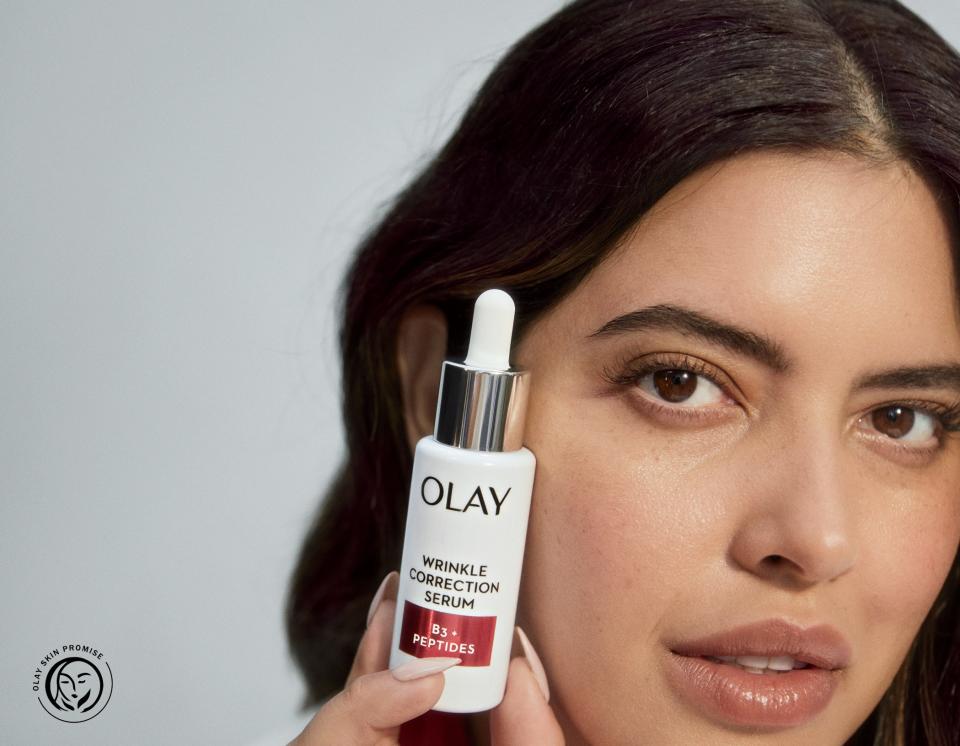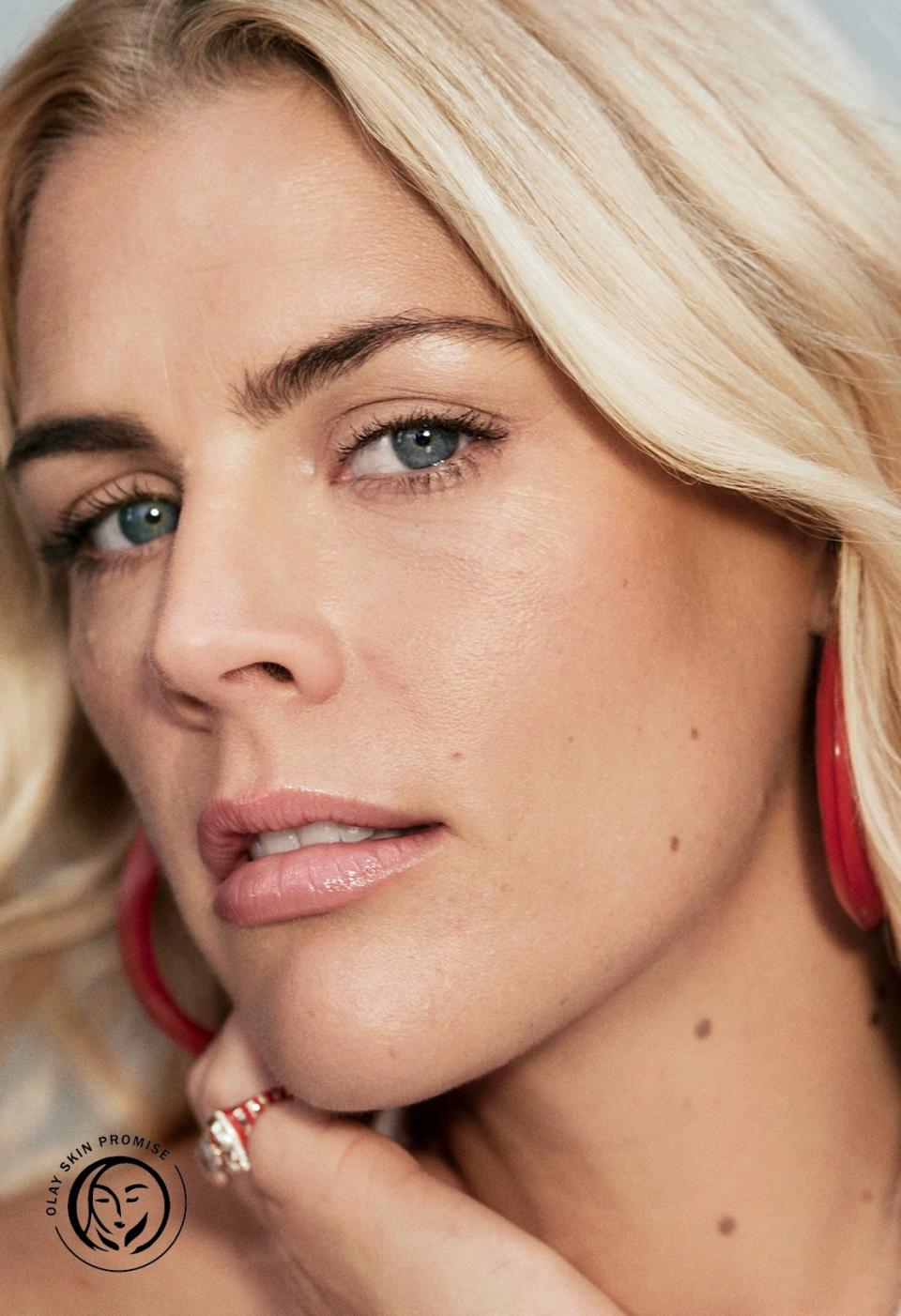Olay Will No Longer Retouch Models’ Complexions in Its Skin-Care Ads
Photoshop in advertising is no secret—as is the result it’s had on the way we see ourselves. It’s something the beauty industry has reckoned with over the past few years as women demand to see more realistic imagery in the world around us. And now Olay is delivering: The brand just announced it is officially committed to “zero skin retouching” in all of its advertising materials, including content created by Olay’s influencer partners.
Olay admits in a statement that women face outrageous, and often conflicting, expectations about their appearance from the beauty industry and society as a whole. “In the U.S., 40% of women surveyed by Mintel said they felt beauty advertisements impart an unrealistic expectation, making it unclear what was actually achievable,” the statement reads.
So Olay is making a big change. Starting with a campaign led by actor Busy Philipps, model Denise Bidot, and comedian Lilly Singh, the company’s advertisements will be paired with an Olay Skin Promise logo, assuring buyers that the ad was completely untouched. Beyond the initial launch, you can expect to see the logo on all the brand’s imagery across print, digital, and TV by 2021. If this all sounds familiar, Olay is partnering with CVS, which launched its own campaign against excessive Photoshop in beauty ads in 2018.

Philipps, for one, is thrilled to be a part of this particular body-positive movement. “For Olay to take this stand and say, ‘We’re about skin care, we’re about having you feel your best and having you feel like your most confident self,’ it’s a really big deal,” she said in a statement. “The more huge companies like Olay that can stand up, the better everyone’s going to be. You want to see yourself reflected. You don’t want to see something that’s completely unattainable, because that’s not real."
Philipps went on to tell Allure about her own experiences being altered in photo shoots. “My moles are such defining characteristics of my skin—it’s who I am,” she said. “So to have that message sent to me in the beginning of my career caused a lot of self-doubt.”

It’ll be interesting to see where this goes. Olay is far from the only beauty and lifestyle brand taking the leap into unretouched advertisements. Aerie just announced its latest group of #AerieREAL Role Models with an unretouched photo campaign, for example. But the world of Instagram influencers is still a mostly unregulated land of perceived perfection and Facetune. Hopefully this is just one of many steps in changing toxic messaging online.
“I think people are so conditioned to see a ‘perfect’ face staring back at them on Instagram,” Philipps said. “And the more those [types of retouched] images get out there, the more it reinforces a normal that is not normal.”
Originally Appeared on Glamour

 money
money 